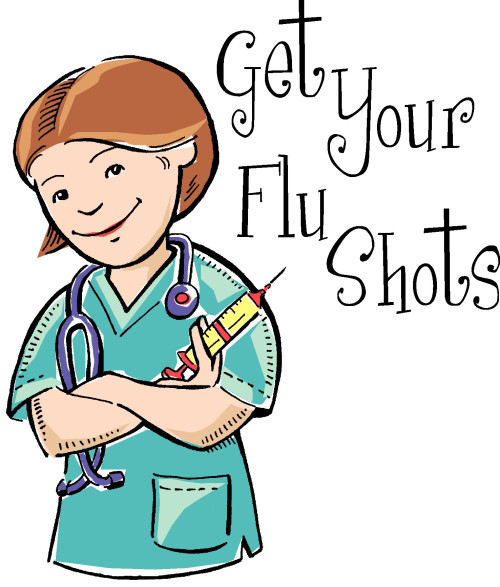- Home
- Editorial
- News
- Practice Guidelines
- Anesthesiology Guidelines
- Cancer Guidelines
- Cardiac Sciences Guidelines
- Critical Care Guidelines
- Dentistry Guidelines
- Dermatology Guidelines
- Diabetes and Endo Guidelines
- Diagnostics Guidelines
- ENT Guidelines
- Featured Practice Guidelines
- Gastroenterology Guidelines
- Geriatrics Guidelines
- Medicine Guidelines
- Nephrology Guidelines
- Neurosciences Guidelines
- Obs and Gynae Guidelines
- Ophthalmology Guidelines
- Orthopaedics Guidelines
- Paediatrics Guidelines
- Psychiatry Guidelines
- Pulmonology Guidelines
- Radiology Guidelines
- Surgery Guidelines
- Urology Guidelines
Annual flu shot may reduce illness and death risk in cardiac patients

Annual flu shot may reduce illness and death risk in cardiac patients, according to a new study.
An annual flu vaccination is inexpensive, easy and proven to prevent illness and death in people with heart disease, however, almost 1 in 3 patients skip the flu shot.The preliminary research shall be presented at the American Heart Association's Scientific Sessions 2019 -- November 16-18 in Philadelphia.
Patients need to be educated about the benefits of the flu vaccination," said lead study author Gowtham Rama Harsha Grandhi, M.B.B.S., M.P.H., an internal medicine resident physician at MedStar Health in Baltimore. "People with heart disease are at higher risk of medical complications or death from the flu."
The vaccine rates are worse among the uninsured and those who lack regular medical care.
The researchers examined vaccination rates in more than 15,000 people age 40 and older who had experienced a heart attack, stroke or had other conditions related to clogged arteries. All were participants in the national Medical Expenditure Panel Survey between 2008 and 2015. Researchers found:
- Almost 1 in 3 had not been vaccinated against the flu in the past year;
- Of those who had insurance and a regular source of medical care, almost 30% hadn't been vaccinated for flu; and
- Uninsured, low-income individuals had the highest rate of non-vaccination at 65%.
"Our study sheds light on key inequalities related to disparities in flu vaccination rates. We hope that flu vaccinations among heart disease patients becomes an integral part of quality of care measures and will facilitate processes to limit these unintended care gaps among the most vulnerable in our society" said senior author Khurram Nasir, M.D., M.P.H., M.Sc., chief of Cardiovascular Prevention & director of Outcome Research at Houston Methodist. "Future studies should put emphasis on patient and health system factors driving these disparities and practical interventions to overcome these challenges".
"Cardiologists, primary care doctors and other clinicians need to have a conversation about flu vaccination well in advance of the onset of flu season to encourage patients to have routine follow-up appointments early in the flu season. Additionally, they should be offering vaccination and possibly providing walk-in appointments for flu vaccination at their centers," Grandhi said.
Because information on medical conditions and vaccination history was obtained through surveys and not verified with medical records, inaccuracies in patient recall might have influenced the results. In addition, the study was not able to analyze the vaccination rates in young adults because there weren't enough survey participants in the 18-39 age group who had heart disease.
According to the American Heart Association's Chief Medical Officer for Prevention, Eduardo Sanchez, M.D., M.P.H., FAAFP, this study provides additional merit for a new Association project.
"We are partnering with the American Lung Association and the American Diabetes Association to collectively deliver a message to providers and to the general public that all adults and all children, by and large, should be getting influenza vaccinations year after year, but in particular, for our patients who have chronic diseases like high blood pressure, diabetes or emphysema, it is critically important to get that flu vaccine. Because the consequence of the flu with complications is far, far greater for those with chronic diseases," said Sanchez.
Next Story
NO DATA FOUND

Disclaimer: This site is primarily intended for healthcare professionals. Any content/information on this website does not replace the advice of medical and/or health professionals and should not be construed as medical/diagnostic advice/endorsement or prescription. Use of this site is subject to our terms of use, privacy policy, advertisement policy. © 2020 Minerva Medical Treatment Pvt Ltd